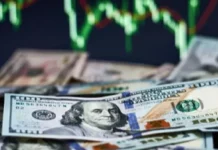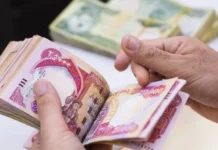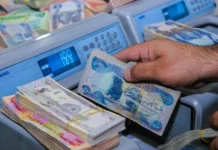Tishwash: The Parliamentary Legal Committee reveals to (Al-Mada) the date for resuming Parliament sessions.. This is the most important thing that will be passed
The Parliamentary Legal Committee set, on Saturday, the date for resuming the sessions of the House of Representatives, while revealing the most prominent laws that will be passed during the current session.
Committee member Raed Al-Maliki said in an interview with (Al-Mada), “Parliament sessions will resume on January 9, 2025, which is the first chapter of the fourth year of the current session of the Council.”
He added, “Parliament will proceed with the legislation of a number of laws, most notably amending the Drug Law, the Intelligence Service Law, the laws regulating the right to demonstrate, the Iraqi Media Network, amending the amnesty and personal status laws, and other laws.”
These developments come at a time when the Iraqi parliament is witnessing repeated disputes over controversial laws, such as personal status, general amnesty, land recovery, oil and gas, which has led to the postponement of sessions or the disruption of the passage of laws on more than one occasion.
Parliament is currently seeking to avoid political tensions and ensure the passage of laws in a manner that serves the stability of legislative work.
The Speaker of the House of Representatives, Mahmoud Al-Mashhadani, confirmed after his election to the position that the controversial laws will be put to a unanimous vote, away from political bickering that may hinder the progress of legislative work. link
************
Tishwash: Masrour Barzani discusses regional developments with Trump’s national security nominee
The Prime Minister of the Kurdistan Regional Government, Masrour Barzani, discussed, in a phone call today, Saturday, with Congressman Michael Waltz, who was recently chosen by US President-elect Donald Trump as an advisor to the National Security Council, a number of important issues.
A statement by the regional government received by Shafaq News Agency stated that during the phone call, the two sides discussed the latest developments in Iraq, the Kurdistan Region and the region in general, and stressed the importance of strengthening bilateral relations and joint work to maintain security and stability in the region.
The Prime Minister congratulated the Congressman on his selection as an advisor to the National Security Council, praising his extensive experience in security files and issues related to the region.
The two sides also exchanged views on the results of the recent elections in the Kurdistan Region and the United States, and stressed the importance of democratic change and enhancing joint international cooperation and coordination in this context.
Part of the talks was devoted to discussing the pivotal role of the Kurdistan Region as a reliable partner in the region, as well as its commitment to shared values and goals that promote peace and security. Both sides agreed on the need to intensify joint efforts to overcome challenges and obstacles, in order to ensure the continuation of stability in the region. link
************
Tishwash: Fluctuating Dinar: economic experts urge action as dollar soars in Iraq
Iraq’s dinar continues its erratic trajectory against the US dollar, with no resolution in sight despite years of governmental and central bank efforts, experts attributed the instability to weak policies and unchecked market manipulation.
Root Causes of Volatility
The dollar is surging against the dinar at Baghdad’s main currency exchanges, Al-Kifah and Al-Harithiya, surpassing 1,510 dinars per $1. On the streets, exchange shops are marking up selling prices to more than 1,520 dinars.
“The instability in dollar prices reflects the Iraqi Central Bank and government’s inadequate monetary policies, which fail to address the core of the issue,” said Mustafa Faraj, an economic expert. “Their hesitant measures have left them unable to control the dollar’s value.”
Faraj cited US sanctions on neighboring Syria and Iran as a major factor. “The lack of legitimate trade channels with these countries, combined with restrictions on dollar transfers to them, has led to dollar smuggling, driving up its price,” he told Shafaq News Agency.
“When the dollar rises, it pushes up the cost of basic goods, food, and even commercial activity. This cascade of price hikes stems from a failure to find comprehensive solutions and punish manipulators,” Faraj explained.
Emerging Pressures
New dynamics have exacerbated the crisis. Ahmed Eid, an economic researcher, linked heightened demand for dollars to the fallout from the conflict in Syria. “The shift in Syria has disrupted the interests of militia leaders and influential figures, many of whom are now stockpiling dollars to secure alternative income streams,” he said.
Eid pointed to the closure of Syria’s border with Iraq as a catalyst, forcing traders to seek new suppliers in countries like Turkiye and Egypt. “This transition requires substantial dollar liquidity, which further squeezes the market,” he said.
Currency smuggling and money laundering also continue to erode market stability. “These illicit activities persist unchecked, compounding the dollar’s rise,” Eid warned.
Future Uncertainty Amid Policy Shifts
Concerns are mounting about the impact of Iraq’s planned phase-out of its electronic transfer platform for dollar transactions. Introduced in early 2023, the platform was designed to monitor transfers more effectively. However, the Iraqi Central Bank announced in September that it would be discontinued by year-end.
“The Central Bank’s plan to shift dollar transactions exclusively to foreign banks with correspondent relationships is a blow to local banks,” said economist Ahmed Abdul Rabih. “Four dominant banks will monopolize the sector, sidelining smaller institutions and creating a bottleneck for dollar supply.”
“These banks will dictate the exchange rate, likely driving up prices. The Central Bank must advocate for local banks to establish accounts with international institutions like J.P. Morgan and Citibank,” Abdul Rabih urged.
Reassurances from the Central Bank
In response to public concerns, the Iraqi Central Bank has downplayed fears of major disruptions.
In a statement, it described the transition as part of a phased strategy to align with international standards, emphasizing that 95% of transfers had already shifted from the platform to direct banking relationships.
“The transition will be completed gradually, ensuring continuity,” the bank stated, adding that partnerships with foreign banks in China, India, Turkiye, and the UAE would facilitate trade using non-dollar currencies, such as the yuan and euro.
Thirteen Iraqi banks have already begun operations under the new framework, offering pre-approved transfers and enabling global payment systems for personal and commercial needs, the statement said. These steps aim to “stabilize the currency and curb inflation, reinforcing official exchange rates as the benchmark for legitimate economic activities.”
“The official rate reflects real market dynamics,” the Central Bank stressed, warning against unofficial rates driven by “those engaging in unauthorized practices.”
The bank emphasized that it has structured external transfer operations and the fulfillment of dollar demand along proper channels, aligned with international practices, standards, and the Anti-Money Laundering and Counter-Terrorism Financing Law.
“Providing these channels for all purposes at the official dollar exchange rate makes this rate the true benchmark for economic practices, as evidenced by price stability and inflation control. Any other rate traded outside these channels is considered irregular and utilized by those engaging in non-compliant or illicit practices who avoid official channels in their dealings. These individuals bear the additional costs of purchasing at higher rates than the official price to create the illusion of a disparity between the official and unofficial rates.” The statement concluded.
Despite reassurances, skepticism lingers among economic experts, who argue that without stricter enforcement and comprehensive reforms, the dinar’s fluctuations will persist. For many Iraqis, the cost of living remains tightly bound to the fate of the dollar. link





